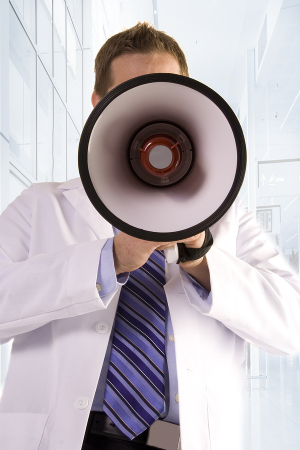Experts call for national medical device evaluation system in U.S.
por
Lauren Dubinsky, Senior Reporter | July 27, 2016

Balances desire to speed up access
to technology and address safety issues
The main challenge with device regulation is ensuring timely access to technology while also providing evidence that guides safe and appropriate use. In a commentary published in JAMA, FDA Commissioner Robert Califf and Center for Devices and Radiological Health Director Jeffrey Shuren renewed their call for a national medical device evaluation system in the U.S.
In 2012, the FDA took the first steps to establishing the National Evaluation System for Health Technology (NEST). It balances the desire to speed up access to new technology and address safety issues through the device's life cycle by using clinical data sources including registries, EHRs and claims data.
Currently, when a device is approved in the U.S., benefits and risks are usually addressed in the post-market evaluation. The FDA requires this but patients don't have many incentives to enroll once the device is marketed, so the studies have often been delayed or never completed.
In addition, it's the clinician's job to report any adverse events and device malfunctions, but many fail to do so. Because of that, safety issues are usually not identified until many patients have already been exposed to risks.
“Currently, our knowledge about how devices function after they’re on the market can be lacking. It can take years, sometimes, to figure out if there’s a problem with a device,” Marilyn Neder Flack, executive director of the Advancing Safety in Healthcare Technology (AAMI) Foundation, said in a statement.
NEST will have an independent coordinating center that represents patients, the health care and medical device industry and regulators. The center will use the databases and unique device identifiers to determine a mix of pre- and post-market evaluations that a device requires, based on its risk-benefit profile.
All stakeholders in the medical device ecosystem have strong incentives for being involved with NEST, according to the commentary. The patients can benefit from a systematic, transparent approach to device evaluation and access better information about the appropriate way a device is used.
Physicians, hospitals, health systems and practices can benefit from information about the quality of care associated with device selection, procedural outcomes, and follow-up. Device manufacturers can provide high-quality data to encourage decisions about when devices should be used for particular patients and how to reduce risk across the life cycle of the device.
“Essentially, NEST should be of, by, and for the medical device ecosystem and configured to provide maximal value to stakeholders, including the critical data needed by the FDA to make decisions that currently must be made with less comprehensive information,” the authors of the commentary wrote.
|
|
|
You Must Be Logged In To Post A Comment
|
